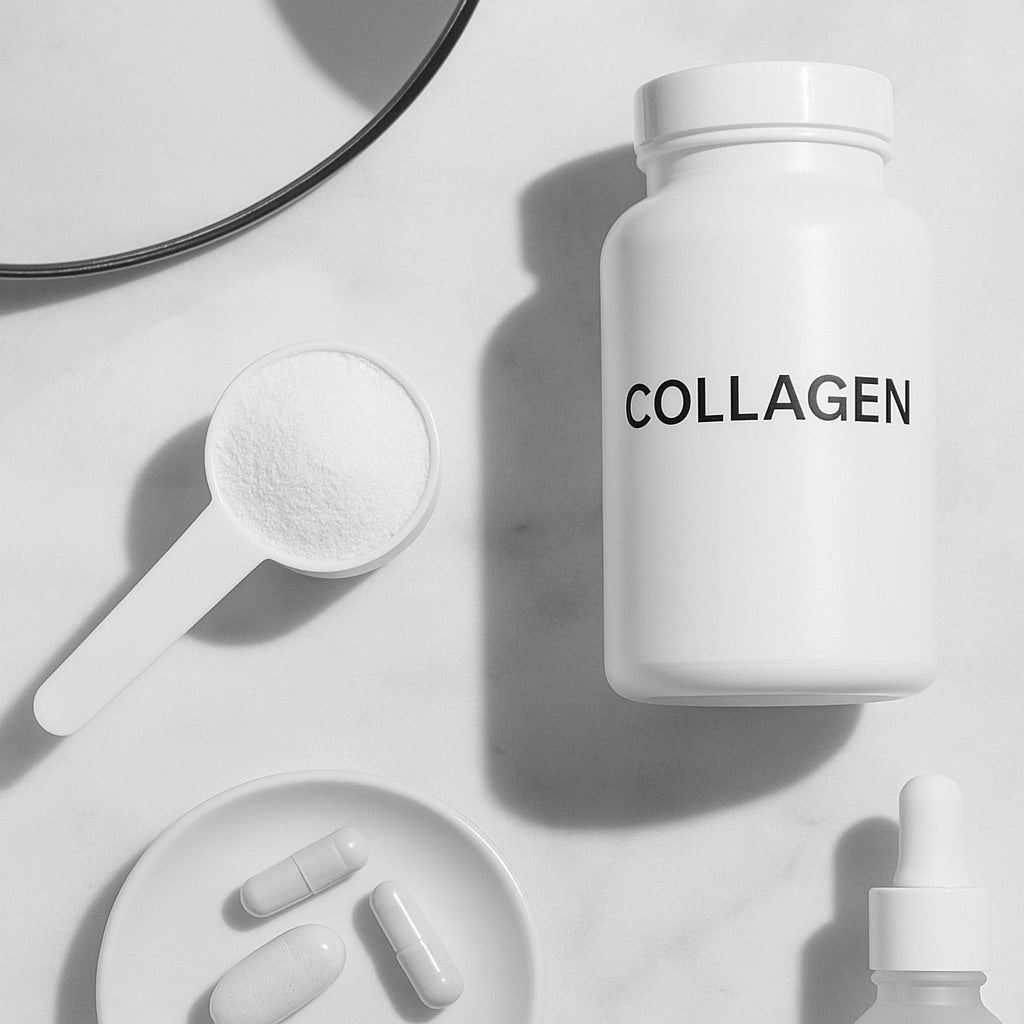
10 Science-Backed Benefits of Collagen
Collagen is more than a beauty buzzword — it’s the body’s most abundant structural protein. Found in skin, bones, muscles, joints, and connective tissue, collagen plays a vital role in maintaining strength, elasticity, and hydration. But production declines with age, leading to visible and internal signs of aging. This article explores 10 clinically-supported benefits of collagen supplementation — and why it deserves a place in your daily wellness stack.
What Is Collagen?
Collagen is a fibrous protein that forms the basic structure of connective tissues throughout the body. It provides tensile strength to the skin, elasticity to ligaments, and support to the intestinal lining. There are at least 28 types of collagen, but Types I, II, and III are the most abundant in humans.
Types of Collagen:
- Type I: Found in skin, tendons, bones — most abundant
- Type II: Found in cartilage — supports joint health
- Type III: Found in blood vessels and skin — works with Type I
Why Does Collagen Decline?
From age 25 onward, natural collagen production declines by about 1% per year. This process is accelerated by UV exposure, smoking, high sugar intake, stress, and inflammation. Symptoms include wrinkles, dry skin, brittle nails, stiff joints, and slower muscle recovery.
Top 10 Proven Benefits of Collagen
1. Improves Skin Elasticity & Hydration
Multiple studies confirm that collagen peptides improve skin elasticity and hydration, especially in women aged 35–65.
2. Reduces Wrinkles and Fine Lines
Collagen supplementation has been shown to reduce wrinkle depth and volume, especially around the eye area, in double-blind placebo-controlled studies.
3. Supports Joint Health and Reduces Pain
Hydrolyzed collagen (especially Type II) supports cartilage regeneration and joint lubrication. Supplementation helps reduce joint pain and improve mobility.
4. Enhances Muscle Mass with Training
Collagen contains high amounts of glycine and proline, which support muscle protein synthesis. In elderly men, collagen supplementation improved strength and lean mass when paired with resistance training.
5. Strengthens Hair and Nails
Though more anecdotal, studies show collagen may reduce nail breakage and support keratin structure in hair.
6. Promotes Gut Integrity
Glycine and glutamine in collagen may help seal the intestinal lining, making collagen potentially beneficial for leaky gut and digestion.
7. Speeds Up Injury and Post-Workout Recovery
Collagen supports tissue repair after stress or injury. Athletes using collagen recover faster from joint and tendon stress.
8. Improves Bone Mineral Density
Collagen makes up 90% of bone’s organic matrix. A year-long study in postmenopausal women found improved spinal bone density after collagen supplementation.
9. Enhances Skin Glow and Tone
Improved hydration and dermal thickness from collagen lead to visibly healthier skin, with better tone and glow.
10. Synergistic with Vitamin C
Vitamin C is essential for converting proline into hydroxyproline, a key step in collagen formation. Without it, collagen cannot form properly.
Types of Collagen: What Should You Take?
Bovine Collagen
- Contains Type I and III
- Great for skin, muscle, and bone
- Widely available and cost-effective
Marine Collagen
- High in Type I — most bioavailable
- Preferred for beauty and skin support
- Often sustainably sourced from fish skin/scales
Chicken Collagen
- Primarily Type II collagen
- Best for joint support and cartilage regeneration
Choosing a Collagen Supplement
Hydrolyzed Collagen Peptides
This form is enzymatically broken down for maximum absorption. Look for "hydrolyzed" or "collagen peptides" on the label.
Check for These Extras:
- ✅ Vitamin C (essential cofactor)
- ✅ Clean sourcing: grass-fed bovine, wild-caught marine
- ✅ No fillers, sugars, or artificial sweeteners
Conclusion: Your All-in-One Wellness Protein
Whether your goal is healthier skin, stronger joints, or better recovery, collagen is one of the few supplements with whole-body support. Backed by clinical data and thousands of positive user experiences, it’s a foundational piece of any smart wellness strategy.
🛒 Ready to start? Try YourEdge Halal Collagen Gummies or YourEdge Marine Collagen Powder — science-backed, clean-sourced, and delicious.
FAQs About Collagen
How long does collagen take to work?
Skin benefits are usually visible in 4–8 weeks. Joint and bone benefits may take 3–6 months of consistent use.
Can I take collagen every day?
Yes. Daily use is recommended and shown to be safe in multiple long-term studies.
What’s the best time to take collagen?
Any time is fine, but pairing with vitamin C (e.g., in the morning or post-workout) improves absorption.
Is collagen vegan?
No. Collagen is animal-derived. However, vegan collagen boosters (with amino acids and cofactors) exist.
What’s better: marine or bovine collagen?
Both work well. Marine is more bioavailable, while bovine supports both beauty and muscle health.
